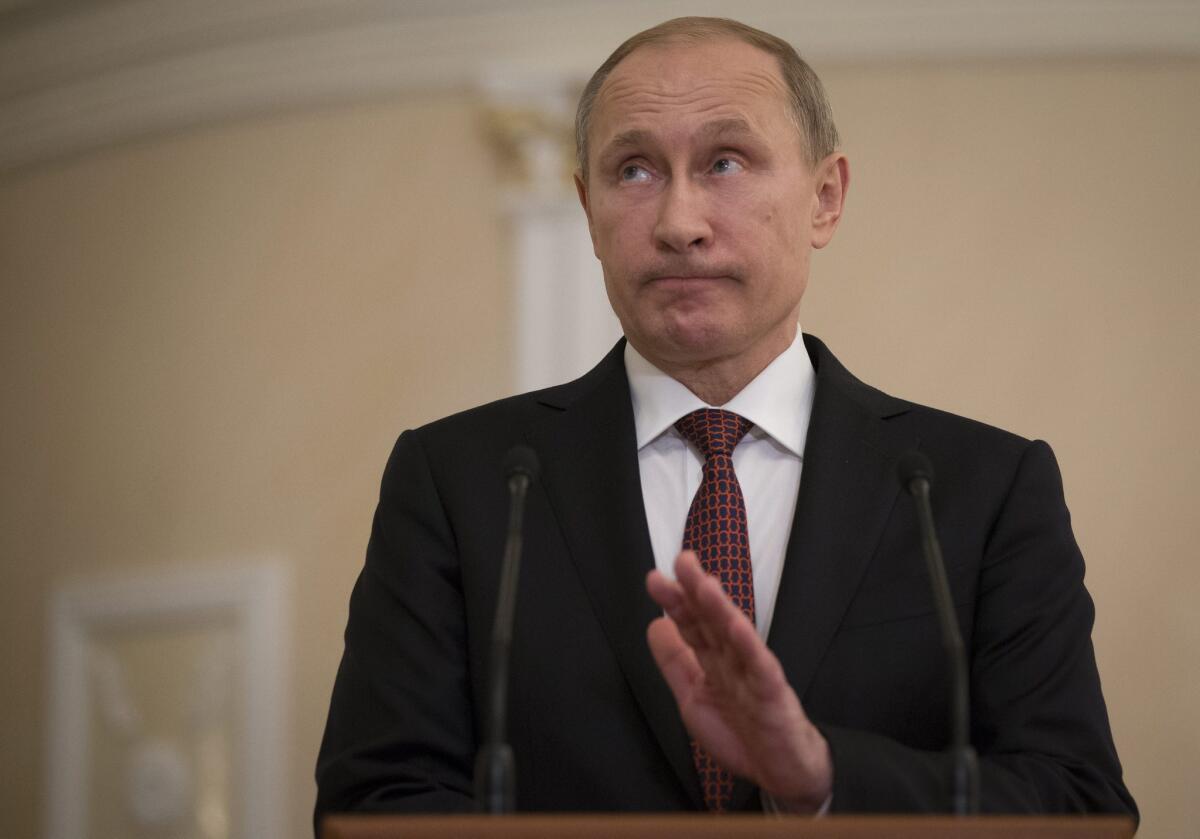Editorial: Agreement on Ukraine could vindicate use of economic sanctions

- Share via
Assuming it doesn’t unravel — a big assumption — the agreement on the future of Ukraine announced Thursday is preferable to the continuation of a conflict in which 5,000 people have died and nearly a million have been displaced. The deal, negotiated by Russia, Ukraine, France and Germany, calls for a “comprehensive” cease-fire and envisions a political settlement that would preserve Ukraine’s territorial integrity while granting some autonomy to pro-Russian regions of the country.
The U.S. welcomed the agreement, but Secretary of State John F. Kerry reiterated that sanctions against Russia would be lifted only after fulfillment of the agreement’s terms including, he said, “a full cease-fire, the withdrawal of all foreign troops and equipment from Ukraine, the full restoration of Ukrainian control of the international border and the release of all hostages.” For now, at least, the agreement spares President Obama a decision on whether he should supply Ukraine with defensive weapons. He can reconsider that if the agreement fails and Russia resumes its assistance to Ukrainian separatists.
It’s crucial that all parties to this agreement abide by its provisions, which also include the withdrawal of heavy weapons, amnesty for separatists and new political arrangements, beginning with interim self-rule for areas in Donetsk and Luhansk. From the standpoint of Ukraine’s sovereignty, the most important provision is the requirement that foreign troops be withdrawn. Bizarrely, Russia agreed to this provision even as it continued to maintain that its forces never crossed into Ukraine.
Even if this agreement succeeds, questions will linger about whether Russian President Vladimir Putin’s policy of meddling in Russia’s “near abroad” has been a success. In one sense, the answer is clearly yes. Russia succeeded in annexing Crimea. But that territory, which was part of Russia until 1954, is viewed as a special case even by the Western governments that condemned its annexation. Russia’s interference in eastern Ukraine has been seen as more ominous and a possible precedent for a campaign to “protect” Russian speakers elsewhere.
If Russia is now willing to cease its military subversion in Ukraine in exchange for autonomy for pro-Russian regions, that’s a positive development. It is also, arguably, a vindication of economic sanctions. But, as German Chancellor Angela Merkel said, the agreement offers a “glimmer of hope,” not a guarantee, that this conflict will be resolved peacefully.
Follow the Opinion section on Twitter @latimesopinion and Facebook
More to Read
A cure for the common opinion
Get thought-provoking perspectives with our weekly newsletter.
You may occasionally receive promotional content from the Los Angeles Times.









